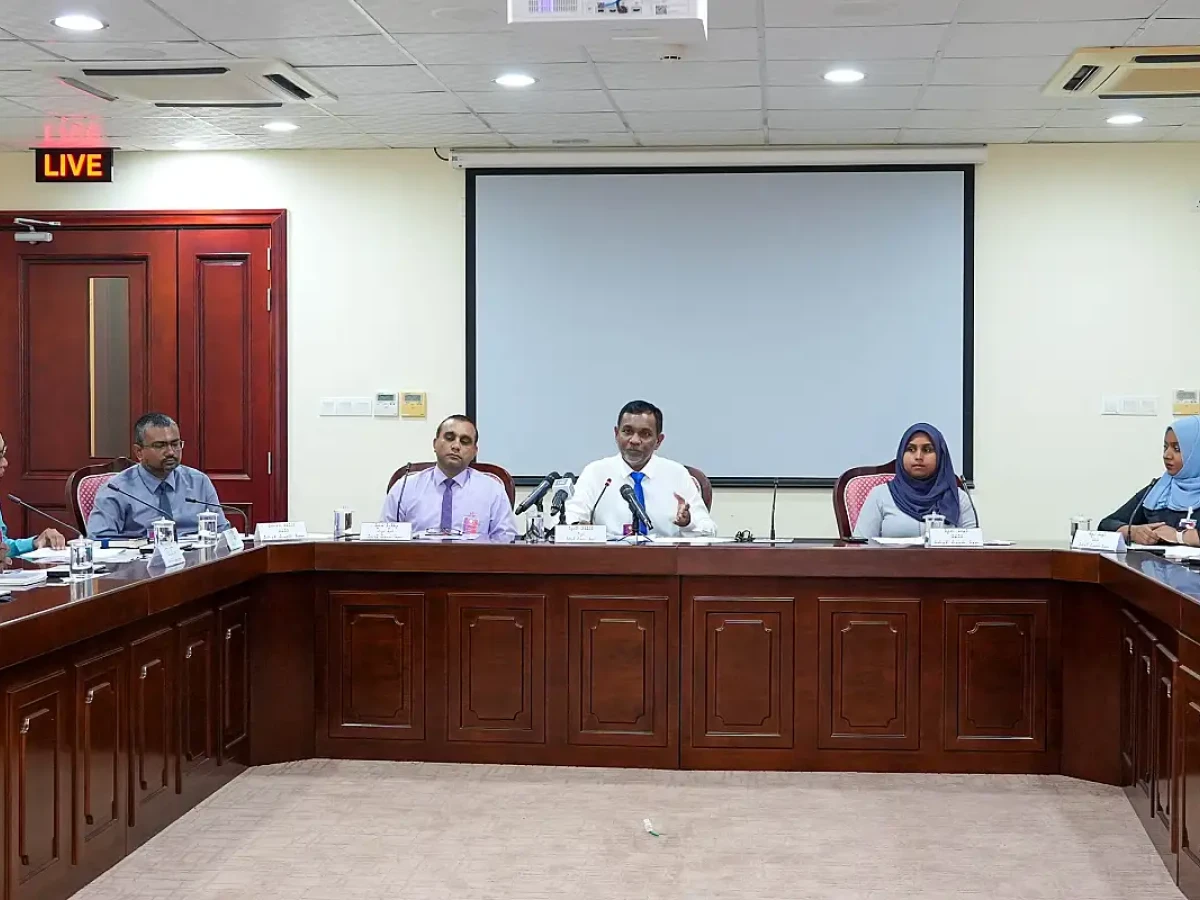
Councils deny entry to Secretary Generals, CSC says
Nasih said the problem of differences of opinion could be resolved by delegating the power to appoint SGs to one agency.
By
Fathmath Ahmed Shareef
The Civil Service Commission (CSC) has proposed amendments to the Civil Service Act as the Secretary General (SG) appointed to local councils by the commission is not accepted by some councils, and denied entry into the council offices.
The Independent Institutions Committee of the Parliament on Tuesday summoned the members of the CSC for updates on the work of the commission.
At the meeting, CSC President Mohamed Nasih said that after discussions with the Attorney General’s (AG) Office to bring about important amendments to the Civil Service Act, some amendments have been submitted to the office.
Sometimes what happens is that we get requests and suggestions that some councils don’t want to appoint [a particular SG]; mainly because, as you know, the councils are composed of people of different political ideologies
Among the amendments proposed to the AG is an amendment to change the existing rule for appointing SGs to councils, Nasih said.
He said the reason for proposing the amendment was to resolve the issues faced by some councils that do not accept the SG appointed by the commission.
“Sometimes what happens is that we get requests and suggestions that some councils don’t want to appoint [a particular SG]; mainly because, as you know, the councils are composed of people of different political ideologies”, he said.
He noted that:
-
Currently, the Civil Service Act requires the SG to be appointed with the advice of the council
-
The law says that the most educationally qualified person should be selected for the post
-
However, some councils do not accept the appointment of a specific SG
-
Some SGs appointed by the Civil Service Commission were not allowed to enter the office in two councils
"But we cannot appoint [as the council demands]. It is our law that we have to appoint the best and most capable person. That's why it's a challenge for us. Then sometimes, the SGs we appoint in this manner are not being allowed into the council's office,' Nasih said.
He said the problem of differences of opinion could be resolved by delegating the power to appoint SGs to one agency. He said the law should be amended to give that power only to the CSC or the council.
Some members of the committee expressed concern and asked whether any action had been taken against the councils.
In response, CSC Vice President Ibrahim Rasheed said that many councils are cooperating and the problem has occurred in only two councils so far. The matter went to the court and the court ordered the admittance of the SG, Rasheed said.
However, the employee later resigned during the case and had to be paid for a long period of time while no work was done. He said the CSC is also held accountable in courts for such actions taken by the councils, but there is nothing the CSC can do to change, prevent or even defend itself in court.
"So the law should be changed here as [commission chairman Nasih] said. One way is for the council SG to be appointed directly by the council. Or he is appointed on merit without any say from the council”.
The CSC on Tuesday noted that many other amendments have been proposed to the Civil Service Act. Some of the amendments are:
-
To leave the recruitment of temporary employees to the councils
-
Raising the retirement age to 70 and the hiring age to 68; these ages can be changed after discussion
-
If government employees are contesting elections, including council elections, they must leave their jobs
-
To change the appointment of Permanent Secretaries in connection with the term of office
-
Dismissal of civil servants accused of crimes such as sexual assault/abuse and deny employment transfer to any area in which he was employed at the time of crime




